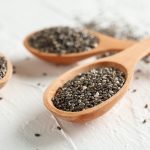Proteins are an important part of our diet. They form a part of our blood and of enzymes and help in building muscles. The most well-known protein is haemoglobin, which carries oxygen in the body and gives blood its red color. Proteins are one of the three macronutrients that the body requires; the other two being Fats and Carbohydrates. Macronutrients provide calories or energy.
There are ten thousand types of proteins in our bodies. Proteins are built from twenty amino acids and out of these, nine are obtained from food. These are called essential amino acids. Since the body does not store protein, the rest are made or modified inside the body.
An average person needs to get 10 to 15 percent of calories from protein and that roughly translates to 1g of protein per kilogram of body weight. Each gram of protein provides four calories.
Proteins must be taken in a certain balanced way because excessive consumption increases the loss of calcium leading to osteoporosis. It can also get metabolized to urea and this can affect your kidneys. Most cereals contain 10% of their weight as protein and for pulses, it is 20% of weight by protein. Chicken has 30% of its weight in protein and fish has 25 to 30%.
Protein is available in a wide variety of foods but it is important to know what else you are eating along with the protein. For example, red meat is a great source of protein but it comes with a high level of saturated fats. On the other hand, eating seafood will also give you omega 3 fatty acids, dairy products will also provide calcium, and beans will give you lots of fibre.
Therefore, selecting the right foods is as important as the amount of protein you consume. Seafood, chicken, eggs, nuts, pulses, beans, milk, and cheese are the good protein sources that one should opt for.






